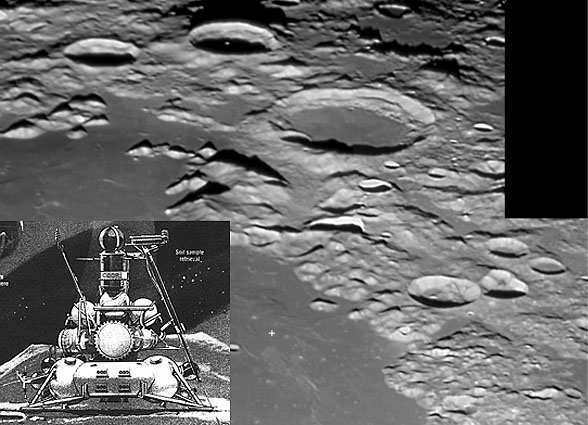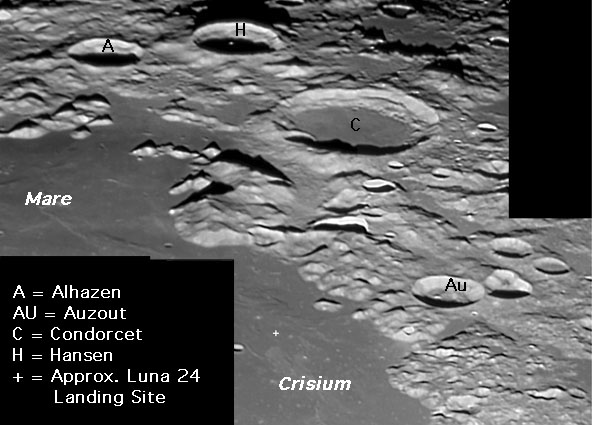Difference between revisions of "August 18, 2004"
| Line 11: | Line 11: | ||
<table width="80%" border="0" align="center" cellpadding="8"> | <table width="80%" border="0" align="center" cellpadding="8"> | ||
<tr> | <tr> | ||
| − | <td><div align="center" class="main_sm"> | + | <td><div align="center" class="main_sm"> |
| + | Image Credit: [mailto:kcpaulhk@yahoo.com.hk KC Pau ] | ||
| + | </div></td> | ||
</tr> | </tr> | ||
</table> | </table> | ||
| Line 46: | Line 48: | ||
<!-- Cleanup of credits --> | <!-- Cleanup of credits --> | ||
<!-- Cleanup of credits --> | <!-- Cleanup of credits --> | ||
| − | < | + | <!-- Cleanup of credits --> |
| − | + | <!-- Cleanup of credits --> | |
| − | |||
| − | |||
| − | <!-- | ||
{{wiki/ArticleFooter}} | {{wiki/ArticleFooter}} | ||
Latest revision as of 13:25, 15 March 2015
Last Rocks from the Moon
Image Credit: KC Pau |
|
Last Rocks from the Moon On August 18, 1976 - 28 years ago today - the Luna 24 spacecraft landed on the Moon in southeastern Mare Crisium. Following two previous failures (Oct 1974 and Oct 1975) Luna 24 successfully landed at 12.25 degrees N, 62.2 degrees E, just a few hundred meters from the damaged Luna 21 spacecraft. A drill bored down 2.5 meters into the mare regolith (surface soil and smashed rocks) and saved the core samples curled up like an intestine in a protective cylinder that was launched back to Earth. The returned 170 grams of lunar samples - the last brought from the Moon - were very low titanium basalts, 3.30 billion years old - younger than most other sampled lunar basalts. The eastern limb and Crisium area deserves more high resolution imaging, such as this shot by KC, because the Lunar Orbiter IV cameras failed while imaging this region. Technical Details: Related Links: Yesterday's LPOD: Rima Weird Tomorrow's LPOD: A New Dome? |
Author & Editor: COMMENTS?Register, Log in, and join in the comments.
|





